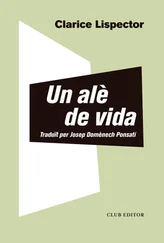I can no longer recall where it began but I know I did not start at the beginning. It was, in a manner of speaking, all written simultaneously. Everything was there, or appeared to be there, as if within the temporal space of an open piano with its simultaneous keys.
I wrote with the utmost care as the narrative began to take shape inside me, and only after the fifth version had been patiently drafted did I become fully aware of the text. Only then did I begin to understand more clearly what was waiting to be expressed.
My great fear was that, out of impatience with my slowness in understanding myself, I might arrive at some meaning with undue haste. I had the impression, or rather felt certain that the more time I gave myself, the more spontaneously would the narrative begin to surface.
Increasingly I find that it is all a matter of patience, of love begetting patience, of patience begetting love.
The book came together simultaneously as it were, emerging more here than there, or suddenly more there than here: I would interrupt a sentence in Chapter Ten, let us say, in order to write Chapter Two, which I would then abandon for months on end while I wrote Chapter Eighteen. I showed endless patience: putting up with the considerable inconvenience of disorder without any reassurance that I would finish the book. But then order, too, can bring a sense of disquiet.
As always, the greatest difficulty is waiting. (I’m feeling rather odd, a woman will tell her doctor. You’re going to have a baby. And here was me thinking I was dying, the woman replies.) My deformed soul growing and swelling, while I remain uncertain whether something is about to come to light.
In addition to this tiresome waiting, it requires infinite patience to reconstitute in gradual stages that initial vision which came in a flash. Recovering that vision is extremely difficult.
And to make matters worse, I am quite hopeless when it comes to editing. I am incapable of narrating an idea, and do not know how to ‘embellish an idea with words’. What I write does not refer to past thought, but to thought in the present: whatever comes to the surface is already expressed in the only possible words, or simply does not exist.
As I write them down, I am convinced once more that, however paradoxical it may sound, the greatest drawback about writing is that one has to use words. It is a problem. For I should prefer a more direct form of communication, that tacit understanding one often finds between people. If I could write by carving on wood or by stroking a child’s head or strolling in the countryside, I would never resort to using words. I would do what so many people do who are not writers, and with the same joy and torment as those who write, and with the same bitter disappointments which are beyond consolation. I would live and no longer use words. And this might be the solution. And as such, be most welcome.
Writing for a newspaper is not so demanding: it is light, it must be light, even superficial. Those who read newspapers have neither the will nor time to read in depth.
But to write something intended for a book often demands more strength than one seems to possess.
Especially if it means devising one’s own writing habits, as in my case. When I consciously decided in my early teens that I wanted to become a writer, I immediately found myself in a void. And there was no one to help or advise me.
I had to emerge from that void, to try and understand myself, and to forge, as it were, my own truth. I made a start, but not even at the beginning. The sheets of paper began piling up-nothing I wrote seemed to make sense, my frustration as I struggled to write something worthwhile became one more obstacle in the path of success. What a pity I destroyed the interminable narrative I then started writing under the influence of Hermann Hesse’s Steppenwolf . I tore it up, contemptuous of my almost superhuman efforts to master the craft of writing and come to terms with myself. And no one knew my secret. I did not tell a soul. I lived through that sorrow alone. One thing, however, did occur to me. It was important to carry on writing without waiting for the right moment, because the right moment never comes. Writing has never been easy for me. I knew from the outset this was my vocation. Having a vocation is not the same as having talent. One can have a vocation and no talent — in other words, feel compelled to write without knowing where to start.
Ample bosom, broad hips, eyes chaste, brown, and dreamy. Now and then she would cry out suddenly. Speaking so quickly that she could scarcely be heard, she confided cheerfully with an air of impatience:
‘I thought that I could never be a writer, I have so … so … little to say.’
One day, however, as if hidden from herself, she had an idea and jotted down some sentences about the beauty of the Sugar Loaf Mountain in her notebook. Just a few words, for she was so concise. Time passed and one evening when she was alone she remembered that she had made a few notes about something or other — the Sugar Loaf Mountain? The sea? She went to look for her notebook. She searched the entire house. She systematically went through every drawer and cupboard. She even opened shoe-boxes in the hope of having been so secretive as to have hidden her notes in a shoe-box. What a good idea. Gradually the sensation of choking grew worse. She ran her hand over her forehead — now she was searching for something more than her notebook, she was searching for what inspiration had dictated. Let us see, let us be patient and have another look. What could she have written in her notebook? She remembered it was something very spiritual about something very picturesque. For her there was nothing like the picturesque. Let’s have another look. It’s a question of willpower, of getting hold of it somehow. What a calamity — she said, standing motionless in the middle of the room, not knowing where to turn, where to look. What a calamity. The room, tranquil in the evening light. And somewhere there was something written, some intimate thought, of that she was certain. She unbuttoned the collar of her blouse. Don’t be down-hearted, she whispered to herself, look amongst your papers, amongst your letters, amongst the cuttings and reviews people keep sending you. Ah, she reasoned illogically, if only they had written to her more often, then she would have more papers to search through. But her orderly life was exposed, she had few places for hiding things, her existence was tidy. Her only hiding place was herself, her own soul which she had once bared in her notebook. But how happy she felt to have pieces of furniture and boxes where she might discover things by chance. She had places where she could go on searching indefinitely.
Now and then she would make another search. From time to time, she would remember her notebook and be seized with fresh hope. Until one day, after several more years had passed, she remarked modestly:
— When I was younger, I used to do a little writing.
I was having a cup of coffee in the kitchen when I heard the maid through in the scullery humming the loveliest melody. A melody without words, a sort of cantilena and full of harmony. I asked her who had written the music. She told me: Nobody, it’s just a silly tune I made up myself.
She did not know she was creative. Just as the world does not know it is creative. I stopped drinking my coffee and began speculating: will the world become even more creative? The world is unaware of itself. We are so backward in relation to ourselves. Even the word creative will no longer be used or even mentioned: things will simply be created. We are not to blame — I went back to my coffee — if we are thousands of years behind. To think of ‘thousands of years hence’ almost made me dizzy, for I cannot even be sure what colour the earth will be. Posterity exists and will eliminate our present. And if the world recreates itself in cycles, let us say, are we likely to revert to the Stone Age so that everything may repeat itself all over again? It wounds me almost physically to think that I shall never know what this world will be like thousands of years hence. On the other hand, I continued to reflect, we may be crawling but we crawl in haste. And the tune the maid was humming will dominate this new world: for people can be creative without even knowing it. Meanwhile, we are as parched as a dried fig which has scarcely any moisture left.
Читать дальше












